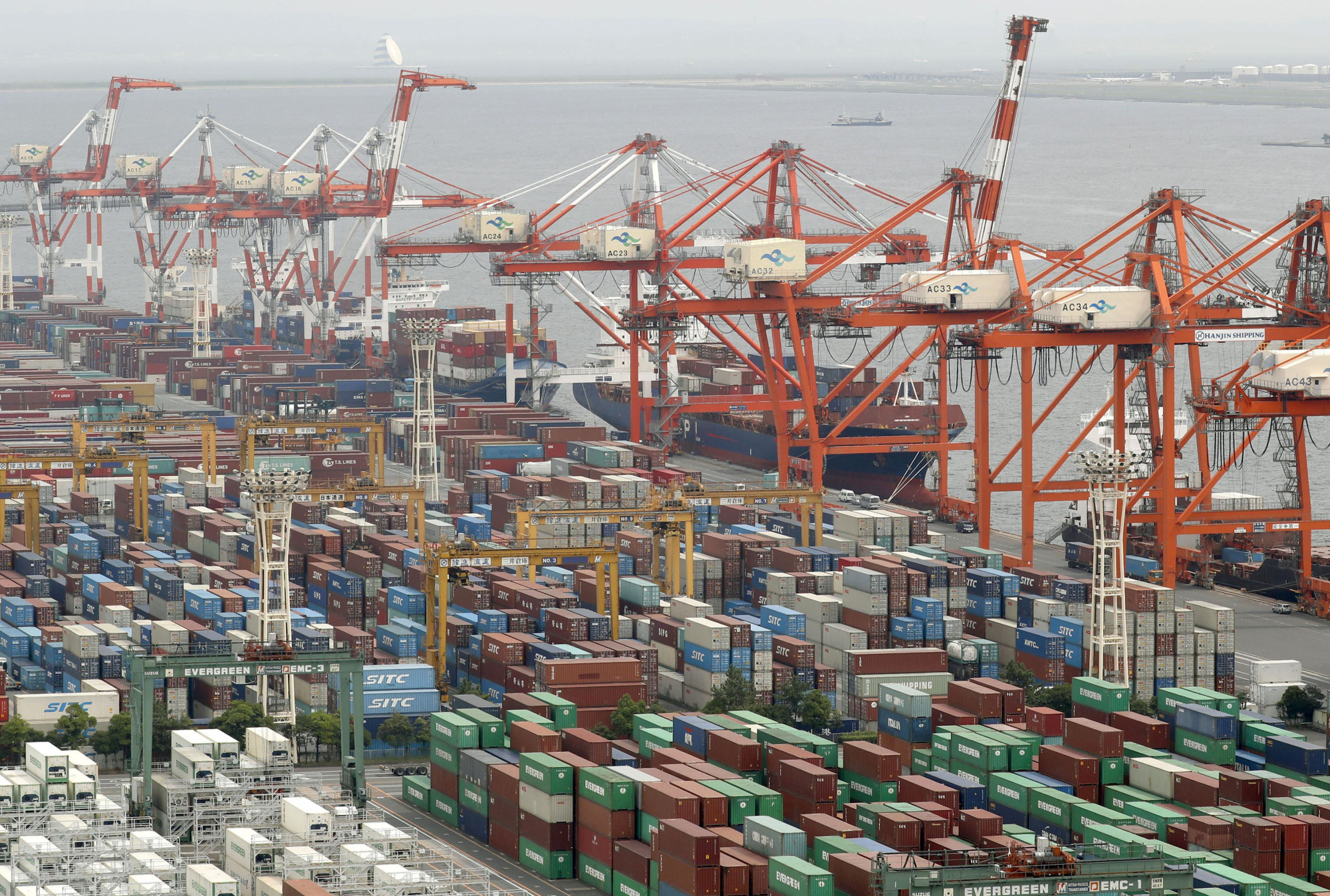The current account surplus in January marked its 67th consecutive month in the black as growing returns on Japan's overseas investments offset a larger deficit in the goods trade, government data showed Monday.
The surplus in the current account — one of the widest gauges of international trade — rose 6.6 percent from a year earlier to ¥612.3 billion ($5.89 billion), the Finance Ministry said in a preliminary report.
Among key components, primary income, which reflects returns on overseas investments, showed a surplus of ¥1.85 trillion, up 4.8 percent from a year earlier.
"At the base is the increase in Japan's foreign investments," a ministry official said in explaining the rise in primary income.
The deficit in goods trade, however, widened 1.6 percent from the previous year to ¥985.1 billion.
Exports dropped 4.8 percent to ¥5.55 trillion, affected by weak auto and construction machinery shipments to the United States, while imports fell 3.9 percent to ¥6.53 trillion, weighed down by falls in liquefied natural gas from Australia and communication devices from China.
Japan's services trade deficit, including cargo shipping and passenger transport, expanded to ¥162.7 billion from ¥149.7 billion as revenue from overseas research, development and consulting by Japanese companies declined.
But the surplus in the travel balance logged a January record of ¥266.9 billion on increased spending by tourists.
February's numbers are likely to drop, however, with inbound tourism expected to take a sharp drop after China banned tour groups from leaving in late January as a measure to curb the spread of the new coronavirus.




